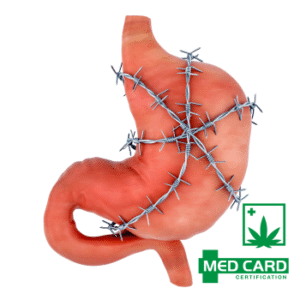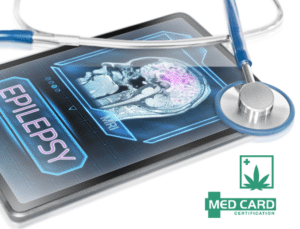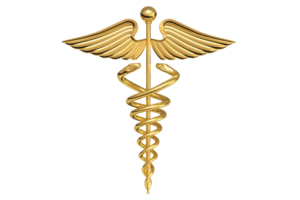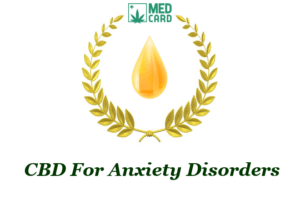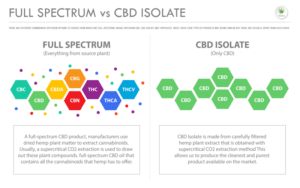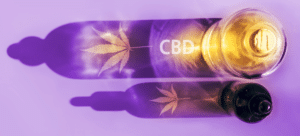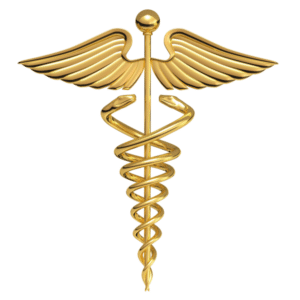
Medical Marijuana and Men’s Health Issues Q&A
- Some men suffering from male-specific medical conditions are finding a measure of relief from some of their symptoms with medical marijuana.
- Medical marijuana has been shown to help with a wide array of symptoms including circulatory issues, chronic pain and inflammation, anxiety, and depression.
- There are conflicting reports as to whether or not smoking marijuana can reduce sperm count or lower testosterone levels.
- Marijuana and cannabis-infused medicines are available at medical marijuana dispensaries nationwide, however, some states require patients to get a medical marijuana card to shop at dispensaries.
Male reproductive organs are prone to a handful of ailments such as enlarged prostate, erectile dysfunction, and cancers of the testicles and prostate gland, to name a few. Can medical marijuana help patients suffering from these conditions?
The answer is that far more research needs to be done to adequately answer this question. However, preliminary findings suggest that marijuana can help some, but not all patients. This may be due not only to the patients’ condition, but also to differences in strains, formulas, and delivery methods used in studies.
Whether or not patients of these conditions are eligible for a medical marijuana card varies from state to state. Also, these conditions are most common in men well over the age of 21. There are currently 18 U.S. states that do not require adults 21 and older to obtain a medical marijuana card to shop at local dispensaries.
In states where marijuana is still illegal, there may be another option. There are strains of cannabis that contain negligible levels of THC called hemp. And hemp is legal nationwide. Certain strains of hemp are high other, non-intoxicating cannabinoids such as CBD, CBG, CBN, and CBC. Anyone can buy CBD online or in local shops without a medical marijuana card as long as it is produced from hemp.
Let’s take a look at a few of the medical conditions that are specific to men and some of the studies that have been undertaken to determine whether or not medical marijuana can help treat these patients.
For those who would like to take a deeper dive into the topic, links to some of the studies mentioned below can be found at the end of the article. We’ll also link to more in-depth articles throughout this post.
Can medical marijuana help men with erectile dysfunction?
Erectile dysfunction can be caused by a number of factors. Stress, exhaustion, illness, high cholesterol, and prostate issues are just a few examples of this all-too-common affliction.
Marijuana may indeed have a positive impact on ED, as it’s known to reduce anxiety and produce feelings of euphoria. Consuming a little bit of cannabis may calm the sympathetic nervous system — the part of the brain responsible for our “fight or flight” response. Reduced anxiety may result in a stronger sexual response.
High cholesterol may also be a potential risk factor for ED. One animal study published in Clinical and Developmental Immunology indicated marijuana’s potential in reducing damage and tissue buildup from high cholesterol. However, more research is required to determine the full effect of cannabis on cholesterol levels in humans.
Some studies report that medical marijuana might have a negative impact on male libido and the ability to achieve and sustain an erection. Cannabis may actually increase the possibility of an ED episode, according to a 2011 literature review published in The Journal of Sexual Medicine. Another research report claimed that THC impairs the normal function of muscles involved in maintaining an erection and that this may result in ED.
It’s important to keep in mind, however, that marijuana is herbal medicine. As such it can have a different effect from patient to patient and even batch to batch.
Does medical marijuana reduce testosterone?
Here, again, research into the effects of marijuana on testosterone levels has had mixed results. Some studies have linked marijuana use to reduced testosterone. However, others have reported increased testosterone among marijuana users.
In 1974 a team of researchers including famed sex researcher William H. Masters published a report in The New England Journal of Medicine. The authors reported dramatic differences in hormone levels in marijuana smokers. Moreover, the quantity of marijuana smoked appeared to correlate strongly with reduced testosterone levels.
Later that year, the same journal published a report of another study that found no relationship between marijuana use and testosterone levels.
The bottom line is that the jury is still out on the effects of medical marijuana on testosterone levels. And again, the effects may vary from patient to patient.
Can medical marijuana affect sperm count?
Once again, the jury is still out on whether medical marijuana can cause a reduction in sperm count. Evidence has been reported that suggests that frequent cannabis use can reduce sperm count.
The results of a study published in 2015 claimed that patients who used cannabis more than once a week showed a 28 percent reduction in sperm concentration and a 29 percent lower sperm count. However, another study published in another reputable journal found that a higher sperm count was found in semen samples of 662 men who used marijuana.
Can medical marijuana help treat prostate cancer?
Around eleven percent of the male population will develop prostate cancer at some point. In fact, prostate cancer is by far, the most common form of cancer in men. The incidence of this disease is even higher in African-American men.
It’s a well-accepted fact that marijuana interacts with the human endocannabinoid system. Interestingly, prostate tumors, in particular, tend to have densely populated cannabinoid receptors. Studies have yielded some important data on the effect of cannabis on cancer cells.
When these tumor cell receptors are stimulated by cannabinoids found in medical marijuana, multiple actions are triggered that might produce anti-tumor effects in some patients. Research suggests that cannabinoids make some cancer cells more vulnerable to apoptosis (cell death), rendering them far less viable. Also, the formation of tumor blood cells (needed by prostate cancer cells to flourish) is discouraged with the administration of THC and CBD.
In 2012 an in-depth study on CBD application for PC was conducted by De Petrocellis et al. The results of the study were very encouraging and the authors suggest that “non-THC cannabinoids, and CBD in particular, retard proliferation and cause apoptosis of PCC [prostate cancer cells] via a combination of cannabinoid receptor-independent, cellular and molecular mechanisms.”
Moreover, cell surfaces appear to exhibit less androgen receptor activity. This is a favorable condition, as prostate tumors seem to thrive in the presence of androgens (testosterone). If the lowering of testosterone levels is the main benefit of cannabis consumption, a marijuana protocol for prostate cancer seems like a no-brainer.
Aside from its effects on tumors, THC is known to lessen nausea, pain, and inflammation in cancer patients undergoing chemotherapy. Cannabis also has the ability to increase appetite and prevent weight loss in cancer patients.
Prostate cancer is known to spread to the skeletal system. Bone cancers can cause excruciating pain. Researchers Ramos & Bianco studied the effects of cannabinoids on patients experiencing this problem. The team ultimately concluded that cannabinoids “harbor analgesic properties that aid bone cancer pain, reduce opioid consumption, side effects, and dependence, as well as exhibiting anti-androgenic effects on experimental prostate cancer cells.”
Can medical marijuana help treat testicular cancer?
Some inconclusive evidence has suggested that a man’s risk for developing testicular cancer may increase with prolonged marijuana use. A recent study reported that men who smoked cannabis were twice as vulnerable as non-smokers to get an aggressive version of testicular cancer.
A cancer surgeon from the University of Chicago has studied the correlation between the disease and cannabis use. Scott Eggener, MD stated: “No one really knows why. Everyone suspects an environmental exposure, but it’s difficult if not impossible to prove.”
Conversely, another team of researchers indicated that the tetrahydrocannabinol (THC) in marijuana is known to fight some types of cancer. They concluded by writing: “The net association of marijuana use with developing cancer is unclear.”
Conclusion
We wish we had more conclusive evidence to report. However, the variations in results from study to study suggest that the effects of marijuana on the male reproductive system depend highly on the patient and his lifestyle as well as the types and dosages of products being consumed.
The medical conditions mentioned in this article are all serious and some are life-threatening. Men suffering from these ailments should not attempt to self-medicate. Patients are advised to seek the opinion of a knowledgeable medical marijuana doctor before using cannabis products.
Sources and Additional Reading
- Impact of Cannabis Use on Male Sexual Health
- Cannabis, Medical Marijuana, and Prostate Cancer
- Cannabis And Its Effect On Prostate Cancer
- Long-Term Marijuana Use May Raise Men’s Testicular Cancer Risk
- Smoking Marijuana Tied to Testicular Cancer
- Incident testicular cancer in relation to using marijuana and smoking tobacco: A systematic review and meta-analysis of epidemiologic studies
- Marijuana use and serum testosterone concentrations among US males
- How Does Cannabis Actually Affect Sex?
- Marijuana and Erectile Dysfunction (ED): Effects, Pros, Cons & More
- Does marijuana increase sexual desire?
- Marijuana smoking and markers of testicular function among men from a fertility centre




